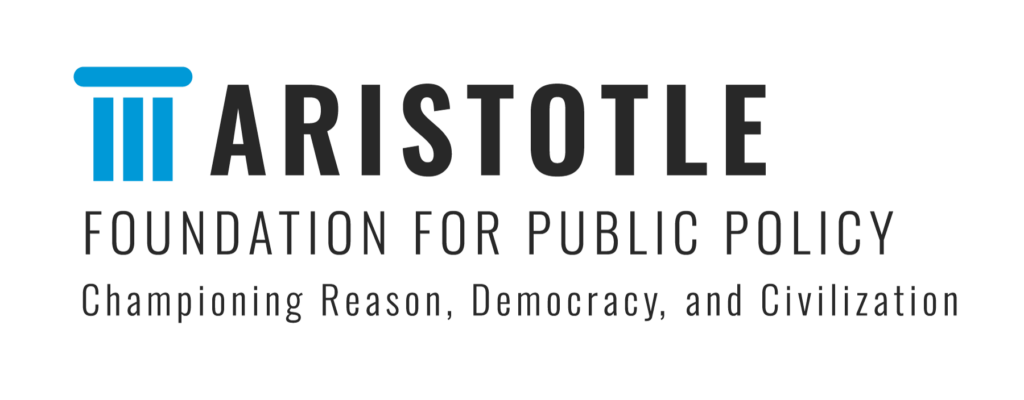

Mark Milke, National Review, December 25, 2022
There are many cheery Christmas tunes that only a Grinch would disdain, despite how often we hear them during the holidays. My own favorites include “Coffee” from The Nutcracker, Bing Crosby’s “White Christmas,” and “Santa Claus is Coming to Town” by Bruce Springsteen and the E Street Band.
However, some songs should be banned from the airwaves in December. They are self-congratulatory celebrity paeans to the singers’ own ostensible omniscience and virtues. Unpleasant as they are, such tunes, once heard over department-store sound systems, are nearly impossible to dislodge from one’s brain, sticking there just as melted Christmas candy fastens on to an old-fashioned apartment radiator.
A prime candidate for a once-a-year ban? “Happy Xmas (War is Over)” from John Lennon and Yoko Ono, which one website lists as the top Christmas song of all time. (The odious Lennon–Ono creation is freshly stuck in my brain after I visited New York City in late November and it invaded my safe shopping space while I was walking in Macy’s.)
The song, originally released in 1971, is both anti-war and ostensibly Christmas-themed. But it also demonstrates what goes awry when celebrities wax poetically about what’s wrong with the world. If only the reactionary public and politicians would listen to their allegedly enlightened views, the result would be peace in our time.
The tune is weak as presumed Christmas songs go. It was a natural outgrowth of several years of “peace” activism by Lennon and Ono, a prime example of when artists, actors, and songwriters lurch into hectoring mode despite their lack of depth on most serious issues. At the time, Lennon and Ono regularly informed the masses that if only we could only all “understand” the world and each other, as they presumed to do from their Manhattan perch, that world peace would break out. Tyrants would thus weep as they saw the error of their ways, and would hammer swords into plowshares — or for celebrities, perhaps the conversion of a nuclear warhead into a Fender guitar. “War is over — if you want it,” they sing, implying that an end to all human conflict is just a matter of sufficient will power.
The Lennon–Ono Christmas song should be paired and understood in context with another anti-war and explicitly anti-religious Lennon song: “Imagine,” also from 1971. “Imagine there’s no heaven/It’s easy if you try,” Lennon croons. He then extolls the virtue of “no possessions” and everyone “sharing all the world” with “no countries, nothing to kill or die for, and no religion too.” “Imagine,” Lennon mused musically, how all this would result in “all the people, living life in peace.”
One didn’t need to imagine anything of the sort in 1971. There were plenty of countries around the world that year which already “shared” possessions in common and where state policy was to repress religious belief — any faith — viciously. No one in Poland, for example, had to imagine a state without religion. That was exactly what the Soviet Union–imposed regime in Warsaw wanted for a mostly Catholic Poland. Communist countries from Eastern and Central Europe to the Soviet Union and on to China, North Vietnam, North Korea, and Cuba were a real-time example of the Lennon–Ono wish-fulfillment fantasy. The results were never pretty or peaceful. The official state-mandated lack of religion did not produce a paradise of peace on earth. Marxists with their atheist states instead bloodied populations and subjected their own citizens to forced famines, state torture, and gulags. Such regimes also regularly started revolutions and wars.
As French authors would later conclude in their magnificent clean-up book on 20th-century communism, The Black Book of Communism, in 1999, nearly 100 million people died worldwide as a result of Marxist atheists.
To be sure, faith is no guarantee of a refuge from the evil that men do. Evil is also committed in the name of faith and by those who think they were/are on a mission from God. The Islamic Republic of Iran has been doing this since 1979, as one modern example.
However, it’s an analytical stretch that requires undue faith in the innate goodness of the religiously naked ape to believe atheism and atheist states will be any different from others who have complete power in a state. It’s an error to think that atheism will somehow thus serve as a peaceful refuge from humanity’s worst impulses. To believe this is to assume that religion — and not concentrated power — is the main problem in human affairs.
See China’s Xi Jinping today as the latest atheist incarnation of John Lennon’s imagined state and its consequences: a man on a mission for himself, who will run roughshod over his own population and others who want nothing to do with his view of how we should live. Xi’s repression is already obvious in China and in Hong Kong, and if he ever gets the chance, in Taiwan.
The same vapidity is evident in “Happy Xmas.” Its most famous line opens the song, and lodges in my cranium without asking permission: “And so this is Christmas/And what have you done?” Those ten words have enough hubris to inflate the Hindenburg. It’s as if ordinary folk somehow should justify themselves to a 1960s–1970s rock star consumed by self and by error, as in his musical worship of anti-religious belief and consequences.
The easy response from normal people to two celebrities who, by 1971, had been writing songs and giving interviews from their bedroom decked out in pajamas can be imagined as follows, perhaps from a single mom: “Oh, I don’t know, John — I’ve been raising three kids, caring for my aged Mom, and working double-shifts at the coffee shop to pay the bills. You?”
Other responses to imagine: From a Second World War veteran: “I fought my way on to Omaha Beach and survived D-Day — and the rest of the war, but many of my friends did not. We beat the Nazis, which is what mattered even more despite the sacrifices.”
Or imagine the response from a steelworker, miner, or farmer: “Endured another grinding day at the foundry/shaft/farm, this to afford the mortgage and Christmas presents.”
Beyond obvious retorts, what’s also off-key about the Lennon–Ono attempt to induce guilt into listeners, as well as the unthinking admiration for their hectoring tune in the guise of a Christmas melody, is the obvious tone-deafness about what the Christian variety of faith did for almost two millennia before Lennon and Ono began their musical lecture to the world. Christianity introduced the concept of individualism into the Western tradition which created our modern world. It moved past the assumed inevitability of slavery to instead become the force behind slavery’s abolition (see: William Wilberforce et al.). It built schools and hospitals over a millennia and more. It battled poverty via charities that have since become commonplace (see The Salvation Army and a million more).
Whenever I hear Lennon and Ono ask, “What have you done?” I contrast the bed-ridden duo with my ever-active, practical, and consequential Aunt Edna. She passed away in 2006, but her life was a rebuttal to celebrity “what have you done?” narcissism.
In Edna’s case, while a young woman with multiple early suitors, she tossed them aside to follow her faith’s calling as she saw it, from God: to save Colombian children from abandonment, poverty, illiteracy, and the streets.
A devout Lutheran from small-town Saskatchewan, Aunt Edna started out serving the children of Colombia at a mission hospital in Bogota in 1967. She soon moved to Villavicencio, then a four-hour drive from Bogota on awful mountain roads. It was there at a nascent orphanage, clinic, nursery, and school (started earlier in the 1960s by two American nurses) that Edna would spend most of the next three decades.
She and Nancy, an American friend and co-worker from Georgia, would run and expand that mission, Paraiso Infantil, for Colombian children well into the 1990s. Many of the children were later adopted out to American and Canadian families. One decade ago, one of my sisters met one such adoptee. Now an adult with her own children near Vancouver, this lady and my sister shared tears of remembrance, of lives changed forever by my aunt and her loving faith.
A few years back, a former Colombian orphan shepherded early in life by my aunt contacted me after a previous column on Edna’s life. “Josue Louis” — later Mike — was adopted out in 1973 to parents in the United States. Mike’s message to me about Nancy and Aunt Edna: “I am thankful every day for the work they did for all the kids there.” Nancy and Edna semi-retired in the late 1990s, but both continued to raise funds to support their lifelong work back in Colombia.
One Christmas message is to be charitable to others. So let’s extend a spirit of charity to Yoko Ono and to the late John Lennon, despite the inherent hubris in the “What have you done?” line. Much of their “Happy Christmas” is cheery enough. “A very Merry Christmas and a happy new year; let’s hope it’s a good one, without any fear,” is their best line.
Nevertheless, this Christmas, we should skip the other stuff celebrities offer up, especially any hints at a presumed moral perch from which they deign to lecture the rest of us. Instead, let’s recall that regardless of one’s own faith or lack thereof, worldwide, from Bogota to Boston and Berlin, it’s the everyday mothers, fathers, grandparents, friends, and missionaries like my late Aunt Edna who serve the world and make it a better, more humane place. They most often do (or did) without any acknowledgment.
Caring for the elderly, raising the next generation, and every good deed in-between — that is what ordinary people have consistently “done.”
MARK MILKE is president of The Aristotle Foundation for Public Policy and editor of The 1867 Project: Why Canada Should be Cherished—Not Cancelled. @milkemark
Image by stuart hampton from Pixabay
Like our work? Think more Canadians should see the facts? Please consider making a donation to the Aristotle Foundation.

The logo and text are signs that each alone and in combination are being used as unregistered trademarks owned by the Aristotle Foundation. All rights reserved.
The Aristotle Foundation for Public Policy is a registered Canadian charity. Our charitable number is: 78832 1107 RR0001.
SUBSCRIBE TO OUR NEWSLETTER